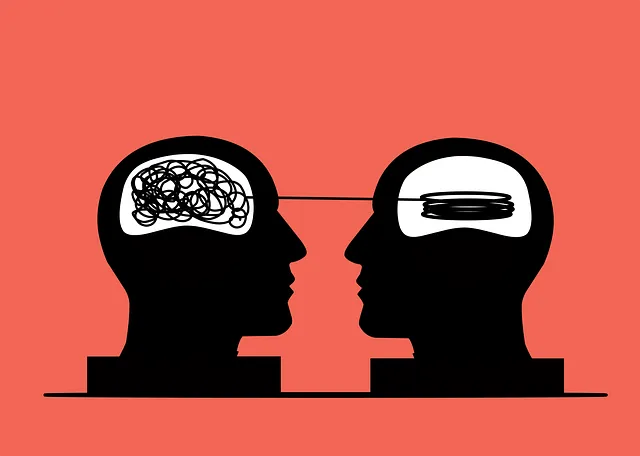Mental wellness apps are gaining popularity as accessible solutions for mental healthcare, with the Lafayette Kaiser Permanente (LKP) mental health department leading this trend. These apps offer on-demand access to evidence-based practices, personalized dashboards for mood tracking and self-care goal setting, and tailored content for diverse populations. High engagement rates are crucial, achieved through interactive features, mindfulness exercises, and virtual support groups. LKP's successful implementation includes leveraging real-time feedback mechanisms, positive affirmations, and targeted marketing strategies to reach high-risk demographics like healthcare professionals. By integrating evidence-based techniques like CBT and mindfulness, these apps can significantly impact users' mental well-being and prevent burnout.
In today’s fast-paced world, mental wellness app development has emerged as a crucial tool to address the growing need for accessible and personalized support. With the success of Lafayette Kaiser Permanente’s mental health department seeing over 10,000 users in its first year, this article explores the key factors driving this trend. We delve into essential features, design strategies, evidence-based practices, and marketing techniques, providing insights into creating effective mental wellness apps that resonate with users like those served by Lafayette Kaiser Permanente.
- Understanding the Growing Need for Mental Wellness Apps
- Key Features and Functionality in Mental Health Applications
- Design Considerations for User Engagement and Retention
- Integrating Evidence-Based Practices into App Development
- Marketing and Distribution Strategies for Mental Wellness Apps: Reaching the Right Audience with Lafayette Kaiser Permanente as a Case Study
Understanding the Growing Need for Mental Wellness Apps

In today’s fast-paced world, mental wellness has emerged as a paramount concern, driving the demand for innovative solutions like mental wellness apps. The Lafayette Kaiser Permanente mental health department has been at the forefront of this shift, recognizing the need to make specialized care more accessible and engaging for a broader audience. This growing trend reflects a broader societal recognition that mental well-being is integral to overall health and productivity. With increasing awareness about the benefits of early intervention and continuous support, individuals are actively seeking digital tools that offer personalized guidance and resources for managing stress, anxiety, and other common mental health challenges.
The need for these apps becomes even more evident when considering the complex landscape of mental health care. Traditional services often present barriers such as limited availability, long wait times, and high costs, especially in remote or underserved areas. Mental wellness apps bridge this gap by providing on-demand access to evidence-based practices, including risk assessment tools like those used by mental health professionals, and coaching programs that facilitate self-care and resilience-building. Furthermore, these digital solutions can be tailored to diverse populations, contributing to a more inclusive and effective mental health policy analysis and advocacy approach.
Key Features and Functionality in Mental Health Applications

Mental wellness apps have emerged as powerful tools to support individuals’ mental health and well-being. Key features often include personalized dashboards where users can track their mood, set self-care goals, and access a library of mindfulness exercises, therapy sessions, and educational resources. Many apps also offer communities for peer support, enabling users to connect with others facing similar challenges, fostering a sense of belonging and understanding.
Functionality in these applications extends beyond basic tracking and content delivery. They integrate features like automated reminders for self-care routines and stress management techniques, promoting consistent engagement. Some apps even incorporate artificial intelligence to adapt content based on individual progress and needs, enhancing the personalization and effectiveness of the mental health support provided. For instance, Lafayette Kaiser Permanente’s mental health department leverages these technologies to offer a wide range of digital resources and programs tailored to their patients’ unique circumstances, contributing to improved outcomes in self-care routine development for better mental health and burnout prevention.
Design Considerations for User Engagement and Retention

The design of a mental wellness app should prioritize user engagement and retention to be effective tools for promoting emotional well-being. Incorporating interactive features like personalized dashboards, progress tracking, and gamified elements can encourage regular use and foster a sense of accomplishment among users. According to Lafayette Kaiser Permanente’s Mental Health Department, engaging content such as mindfulness exercises, educational resources, and virtual support groups can enhance user experiences and build communities.
To sustain interest over time, app developers should implement strategies that align with the Community Outreach Program Implementation framework, such as integrating real-time feedback mechanisms and tailoring content based on individual needs. Emotional Well-being Promotion Techniques, including positive affirmations, stress management tools, and social connection opportunities, can also contribute to longer user retention. Additionally, Public Awareness Campaigns Development targeting specific mental health issues can attract diverse user groups and increase app downloads.
Integrating Evidence-Based Practices into App Development

In the realm of mental wellness app development, integrating evidence-based practices is paramount for creating effective and reliable solutions. Organizations like Lafayette Kaiser Permanente’s mental health department play a pivotal role by establishing guidelines and research that can inform app features and functionalities. By adopting their recommended practices, developers can ensure their apps enhance rather than merely simulate therapy. This involves incorporating techniques such as cognitive behavioral therapy (CBT), mindfulness exercises, and resilience-building activities that have been proven effective in improving emotional well-being promotion.
The Lafayette Kaiser Permanente mental health department’s number one priority is to foster mental health awareness and provide accessible tools for managing mental health challenges. Apps that align with these objectives should not only offer digital therapy but also educate users on various aspects of mental wellness, including stress management, sleep hygiene, and emotional regulation. By combining scientific research with user-friendly interfaces, developers can create game-changing resources that make a tangible difference in people’s lives, revolutionizing the way we approach and support mental health.
Marketing and Distribution Strategies for Mental Wellness Apps: Reaching the Right Audience with Lafayette Kaiser Permanente as a Case Study

Marketing and Distribution strategies for mental wellness apps are crucial to ensure reaching the intended audience, especially within specialized sectors like healthcare. Lafayette Kaiser Permanente’s mental health department serves as a compelling case study in this regard. By leveraging digital marketing channels tailored to the unique demographics and challenges faced by healthcare professionals, app developers can significantly increase visibility and adoption rates.
For instance, targeting burnout prevention strategies for healthcare providers through informative content, social media campaigns, and partnerships with reputable organizations like Lafayette Kaiser Permanente can foster trust and appeal to the specific needs of this audience. Promoting apps designed for stress management within these channels allows for a direct connection with those most at risk, potentially mitigating burnout and improving overall mental wellness among healthcare workers. This targeted approach mirrors Lafayette Kaiser Permanente’s commitment to supporting its staff through innovative mental health initiatives.
Mental wellness apps have emerged as powerful tools in addressing the growing global need for accessible and personalized mental healthcare. As evidenced by Lafayette Kaiser Permanente’s successful implementation of their mental health app, reaching a wide audience with tailored interventions is achievable. By incorporating evidence-based practices, user-centric design, and effective marketing strategies, developers can create impactful apps that enhance mental wellness on a large scale. The Lafayette Kaiser Permanente mental health department’s innovative approach highlights the potential for digital solutions to transform mental healthcare, ensuring better access and improved outcomes for individuals seeking support.






